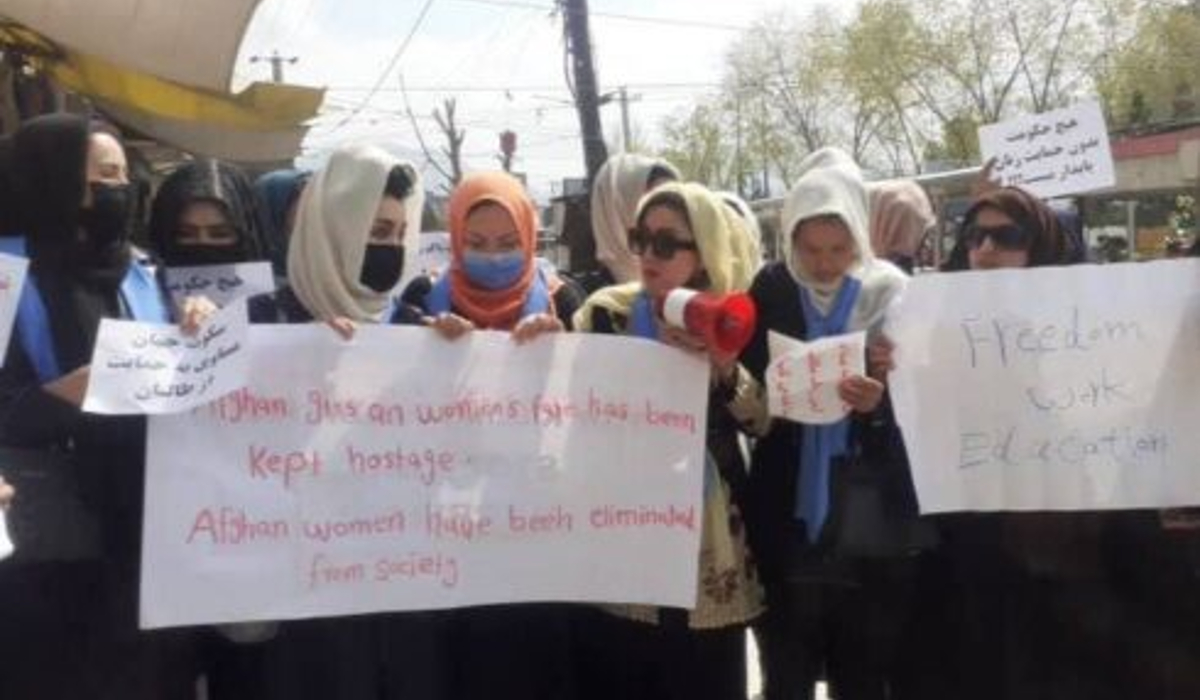The World Organisation Against Torture (OMCT) said on Monday it has joined 63 human rights groups in calling for action to address the “grave human rights crisis in Afghanistan.”
In an open letter to the UN Human Rights Council and member and observer states, dated September 4, the OMCT along with 63 other signatories calls for three key actions.
The first is the renewal of the mandate of the Special Rapporteur on the situation of human rights in Afghanistan; second is the urgent need to set up an independent investigation mechanism at the upcoming session of the Council; and the importance of continuing discussions on the fate of women and girls in Afghanistan.
The OMCT said in a statement that over the past two years, Afghanistan has witnessed an alarming increase in reprisal killings, executions, torture, arbitrary detentions, and enforced disappearances, disproportionately affecting human rights defenders, journalists, artists, and former government officials.
In addition, forced displacement, repression of civil society, and persecution of minority communities may constitute gender-based crimes and crimes against humanity, OMCT said.
The organization stated that these widespread violations occur with impunity, warranting a response similar to the council’s previous actions in Syria, Ukraine, Myanmar, and Iran.
The letter meanwhile states that by “establishing a fully resourced independent investigative mechanism on Afghanistan, the council will act consistently with its approach to these situations and demonstrate that it can take meaningful steps towards ensuring accountability for violations and abuses committed in Afghanistan.”
The signatories of the letter said an investigative mechanism for Afghanistan would need to include the following:
- Investigate all alleged violations and abuses of human rights, violations of international humanitarian law, and international crimes, including the crime of gender persecution;
- Collect, consolidate, and analyze evidence, and prepare files of such violations and abuses, including their gender dimension, and systematically record and preserve all information, documentation and evidence, consistent with international law standards, in view of any future legal proceedings and accountability efforts;
- Document and verify relevant information and evidence;
- To identify, where possible, the individuals and entities responsible with a view to ensuring they are held accountable; and
- Make recommendations with a view to ending impunity and ensuring accountability, including, as appropriate, individual criminal responsibility, and access to justice for victims.
They pointed out that Afghanistan’s independent legal and judicial system and the rule of law have been dismantled, no investigations are being carried out, and there is no possibility of credible national justice efforts.
“Systematic and widespread violations and abuses are being committed with a complete guarantee of impunity for perpetrators as the vast majority of these crimes go undocumented and unreported, particularly gender-based crimes and human rights violations,” the signatories stated.
In conclusion, the signatories called on member and observer states of the Security Council to “once again stand together with the people of Afghanistan, and on the side of victims and survivors who deserve the chance to be heard and to have access to justice.”
This open letter comes after the United Nations Assistance Mission in Afghanistan (UNAMA) said in a report last month that it had recorded credible reports of serious human rights violations by the Taliban against hundreds of former government officials and former armed forces members, including 218 extrajudicial killings.
UNAMA documented at least 800 instances of extrajudicial killings, arbitrary arrests and detention, torture and ill-treatment and enforced disappearances carried out against individuals affiliated with the former republic government of Afghanistan and its security forces since the Taliban takeover in 2021.
While the report sparked widespread condemnation, the Taliban rejected the claims and said the incidents are not “documented and have not been proven.”
UNAMA documented at least 218 extrajudicial killings of former government officials and ANDSF members since the Taliban takeover of Afghanistan. The most targeted groups affiliated with the former government were ANA members, Afghan National Police, National Directorate of Security officials and Afghan Local Police.
In most instances, individuals were detained by the Taliban’s security forces, often briefly, before being killed. Some were taken to detention facilities and killed while in custody, others were taken to unknown locations and killed, their bodies either dumped or handed over to family members.
The report stated that UNAMA has documented more than 424 arbitrary arrests and detentions of former government officials and ANDSF members since the Taliban takeover, and at least 14 instances of enforced disappearance.
UNAMA stated that the apparent impunity with which the Taliban members continue to commit human rights violations against former government officials and ANDSF members is of serious concern.
The report stated that to date, efforts by the Taliban to investigate and hold perpetrators accountable for the incidents described in the report have been extremely limited. Even in the few, isolated cases where an investigation was announced, progress lacked transparency and accountability; impunity prevails.
The report meanwhile pointed out that the Taliban has on a number of occasions responded to killings as having been about “personal enmity or revenge” and that the action was not carried out in an “official” capacity.





